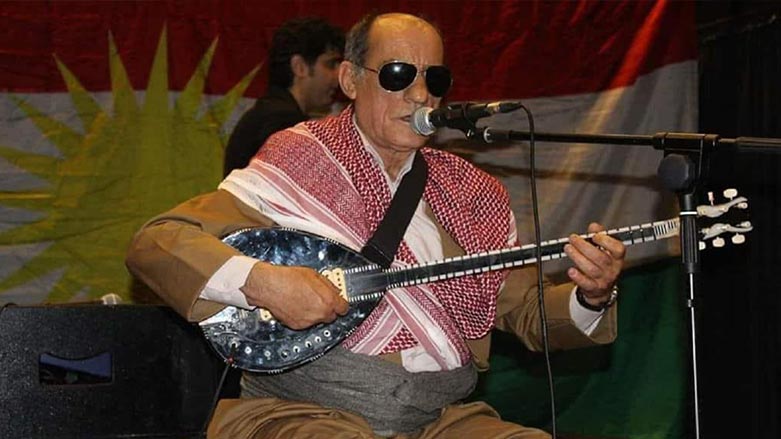Renowned Kurdish singer Said Gabari passes aged 64
Famous Kurdish folk musician and composer Said Gabari passed away on Monday at a hospital in Erbil after a struggle with lung cancer.

ERBIL (Kurdistan 24) – Famous Kurdish folk musician and composer Said Gabari passed away on Monday at a hospital in Erbil after a struggle with lung cancer.
Gabari, 64, arrived in the Kurdistan Region in mid-March from Germany, after which he was quarantined for two weeks as required by the regional government’s anti-coronavirus measures.
However, days after leaving quarantine, his health deteriorated and he was hospitalized in an intensive care unit due to cancer.
The initial plan was to send Gabari on an emergency plane to Germany for treatment on an order by Kurdistan Region Prime Minister Masrour Barzani, but this was not possible.
He passed away on Monday following a battle with lung cancer for several days.
Read More: Beloved Syrian Kurdish singer Said Gabari hospitalized in Erbil
Ibrahim Gabari, the cousin of Said Gabari, thanked the Kurdistan Regional Government (KRG) and Prime Minister Barzani for their support.
Ibrahim said the funeral would be organized on Monday in Mala Omar, a village near Erbil, “because this is his final will to be buried in Kurdistan.”
“Said was an intellectual and spoke multiple languages. He has been considered as the Nightingale of Kurdistan,” Ibrahim told Kurdistan 24.
“After he arrived from Germany, he insisted on being quarantined. After spending 14 days in quarantine, there was no sign of infection, and he left,” the cousin added.
“After that, he was exposed to this disease [cancer] and we brought him here [to the hospital], where he faced his destiny.”
Furthermore, Ibrahim said it would be difficult to organize memorial services due to COVID-19 measures by the KRG that prevents mass-gatherings.
“We have to discuss with the [Erbil] governor, but I don’t think it would be feasible. It will have to be the decision by the government.”
Gabari was born in the village of Xirbê Kejê in the northeastern Syrian province of Hasakah on April 13, 1956.
The artist wore glasses since losing his sight a few years after his birth.
He is known for his patriotic songs and his participation in an untold number of Kurdish concerts and events.
In 1970, the Syrian government arrested and tortured him for singing revolutionary songs.
In a 2015 interview with the artist, The Christian Science Monitor called him a “Peshmerga bard” and reported that he had spent years behind bars in infamous jails, such as one in Diyarbakir, Turkey, Iraq’s Abu Ghraib, Iran’s Evin, and others in Syria.
Editing by Karzan Sulaivany
(Additional reporting by Zerdesht Heme)
